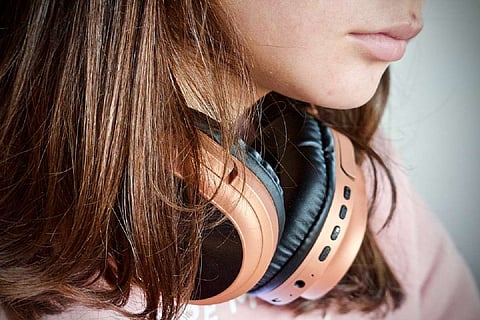

Have you ever come across a song that perfectly puts into words how you are feeling? The relief of feeling heard, the revelation of having your state of mind articulated beautifully is a good one. Music is a powerful tool to connect and feel connected – and now, experts say that it has renewed relevance in mental health, which has become a serious concern during the COVID-19 pandemic.
Lives thrown out of gear, jobs and means of recreation lost, fear of losing loved ones to the disease are some of the aspects, and the isolation – because of the lockdown or because of the contracting the coronavirus itself – have led to an increase in mental health concerns amid the pandemic. While therapy and psychiatric intervention help address these and music is not a replacement for these, it is relatively more easily accessible and is known to help with mental health. Observing World Music Day on June 21, Kauvery Hospitals, Chennai have emphasised the message that music therapy can help in improving the overall mental health of an individual.
Yamini Kannappan, Consultant Psychiatrist, Kauvery Hospital, noted that over the last one year, they have been seeing patients with depression, insomnia and confusion, which are part of post-COVID illness. “We have also noted aggression among children and adolescents due to isolation. We see a significant increase in number of people consulting for some mental health concerns. Among our treatment recommendations, music also finds a place as a key therapy which we recommend to relax the brain and body, and relieve stress. The type of music also plays a key role in the result," she said.
Research into neuroscience has shown that sad music with lyrics produces greater emotional induction than happy music sans lyrics. “The subjective experience of joy and the objective experience of having goosebumps while listening to powerful music are evidence to the fact that music stimulates the reward centre of the brain called nucleus accumbens. While the arousal & mood regulating effects of music are well known to us, the profound effects of lyrics as an efficient emotional processing tool is less explored. Powerful lyrics can increase self-awareness, aid in self-exploration and allow us to process difficult emotions," Dr Yamini noted.
Music therapy is a well-known tool in medicine, and has been found somewhat helpful in working with children on the autism spectrum, in people with psychiatric illnesses like depression and anxiety, people with chronic pain, and even elderly persons with degenerative diseases like Alzheimer’s and Parkinson’s disease. "We have also seen the patient’s verbal communication improve through music therapy. The musical patterns help to express emotions better. Sometimes, it's not just listening to music but also writing songs, playing instruments and singing would aid in improving their well-being," Dr Yamini added. Research has shown that music therapy can help reduce agitation, improving motor skills, dealing with grief, and stimulating long-term and short-term memory with Alzheimer’s, among other things.
“We have seen a rise in number of people expressing their concerns about their mental health and seeking help. However, there is also a large group of people who tend to ignore any symptoms and shy away from seeking help. As physicians deeply concerned about their wellbeing, we urge people to be aware of their own mental health and also to check on their family or friends and help them in seeking help,” said Dr Aravindan Selvaraj, Co-Founder and Executive director, Kauvery Hospital Chennai.